Fund Our Future campaign highlights Nevada’s education woes
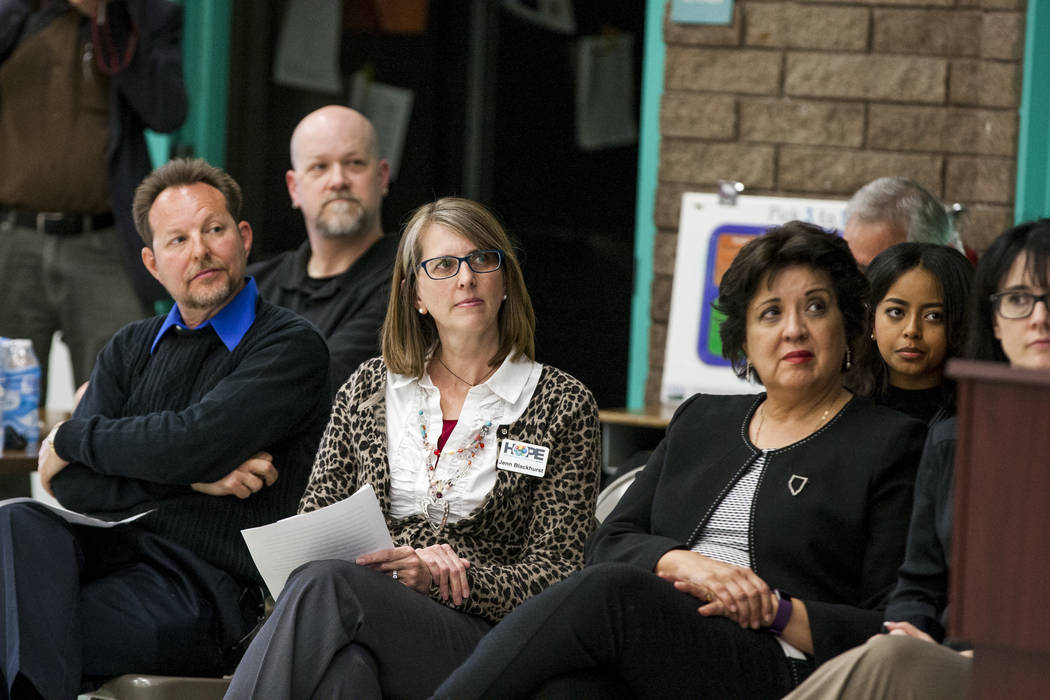
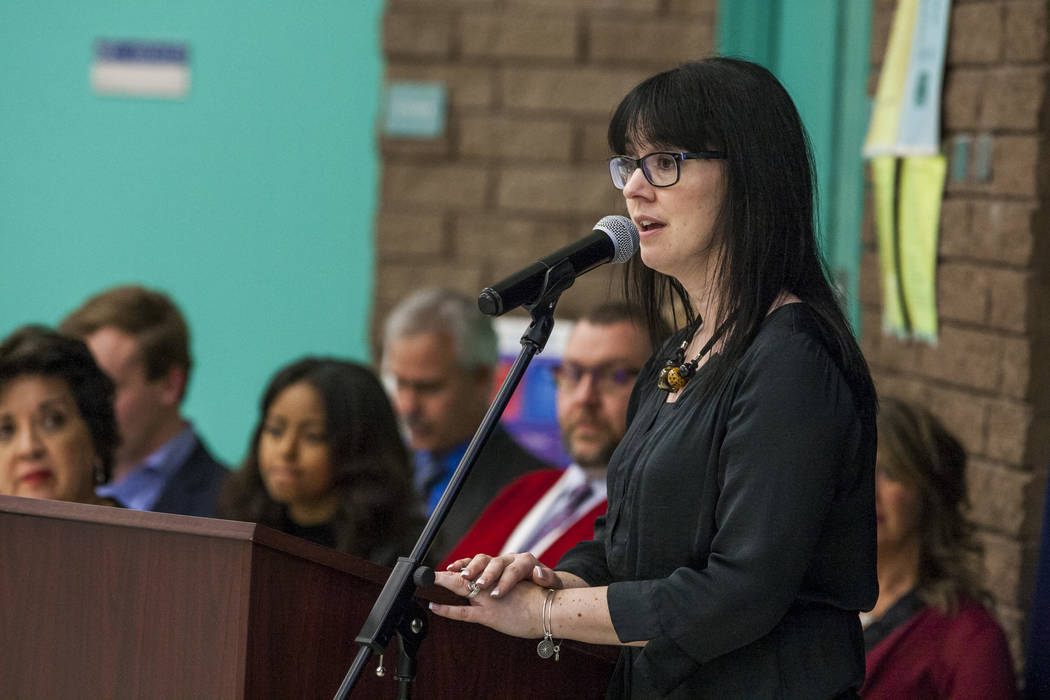
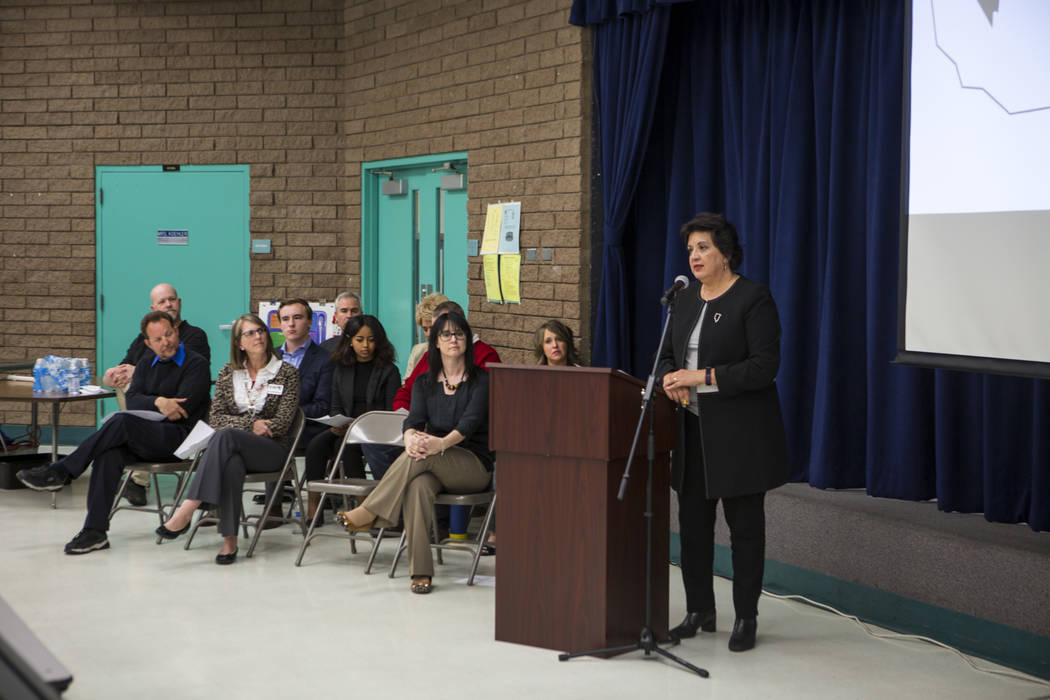
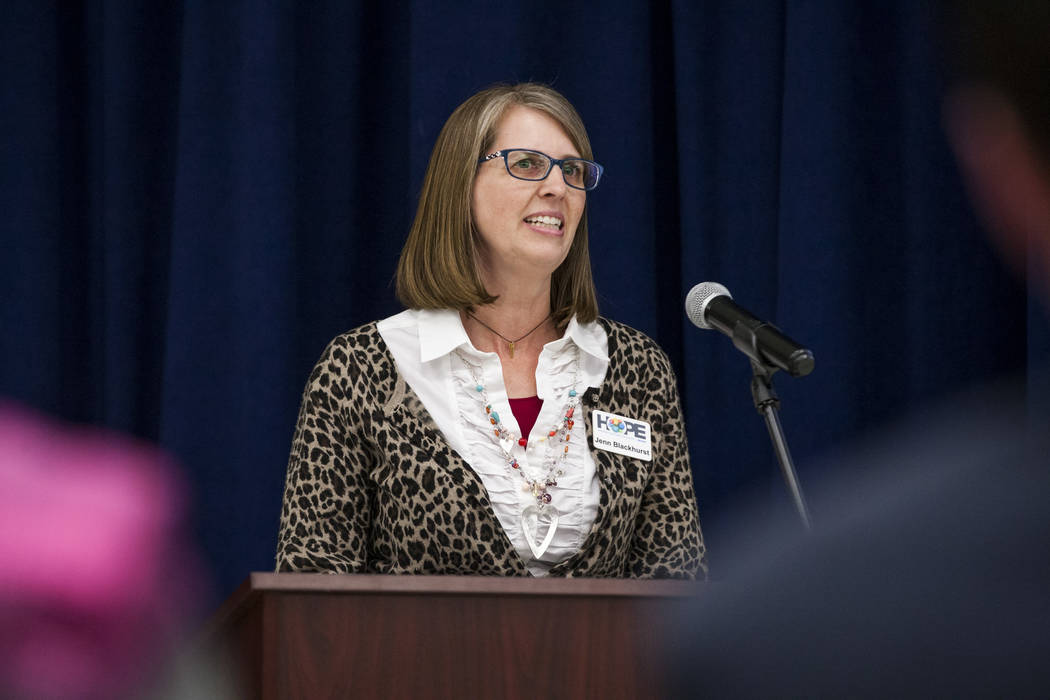
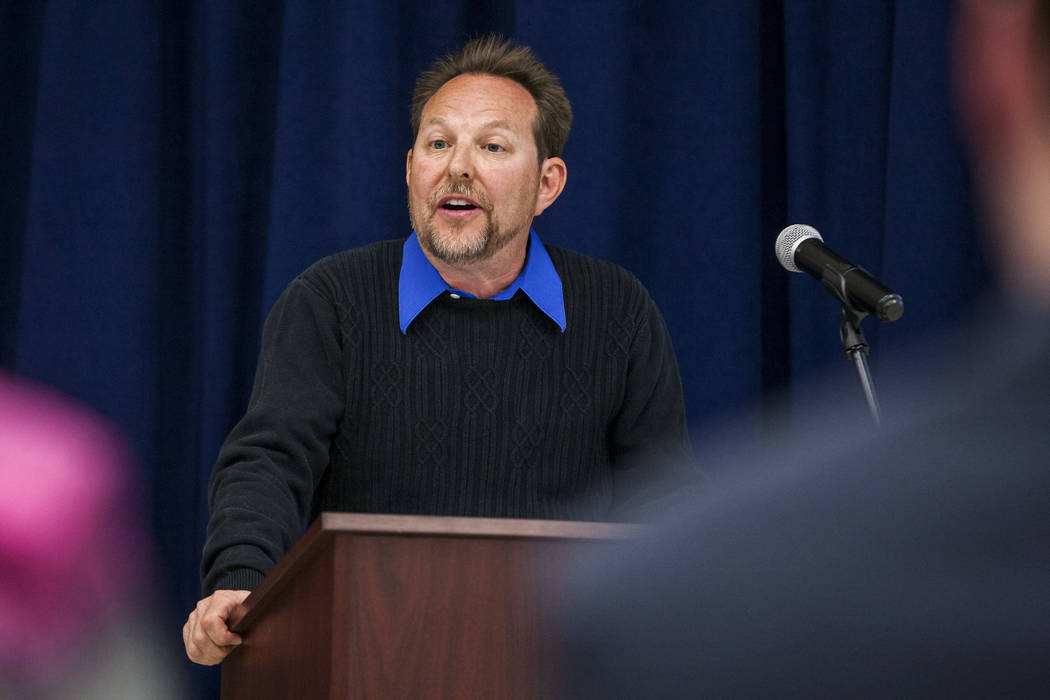
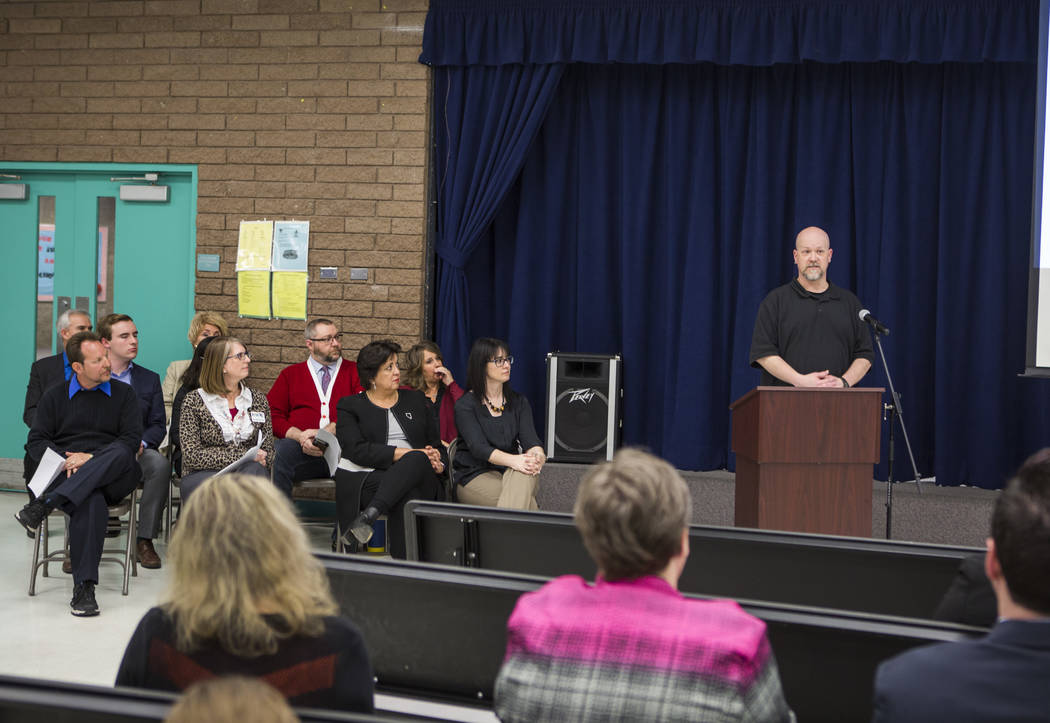
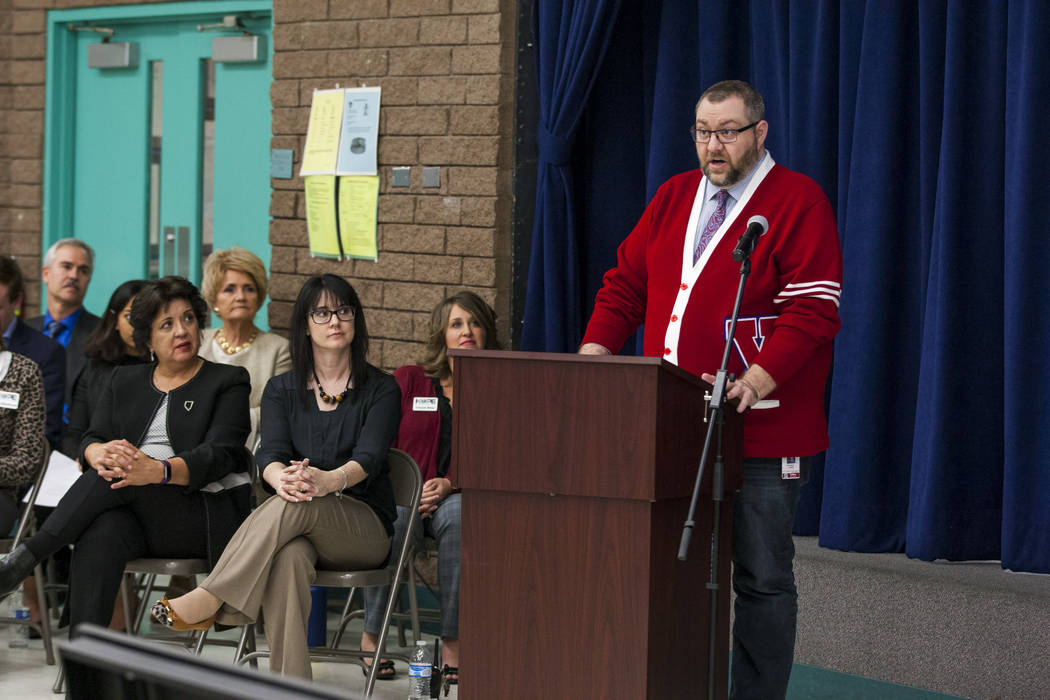
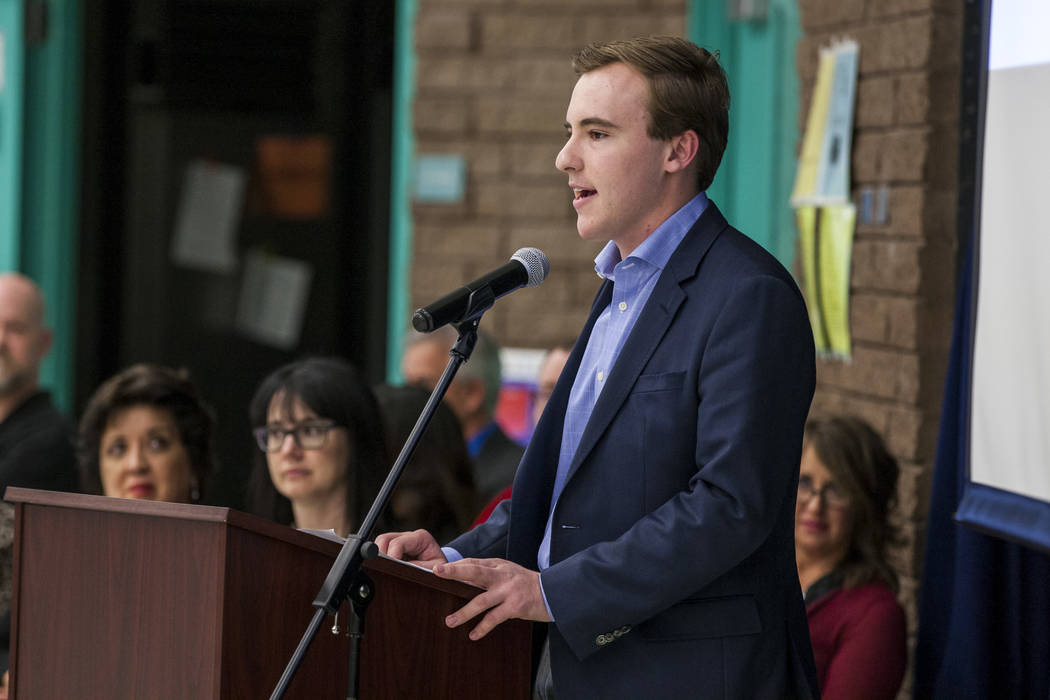
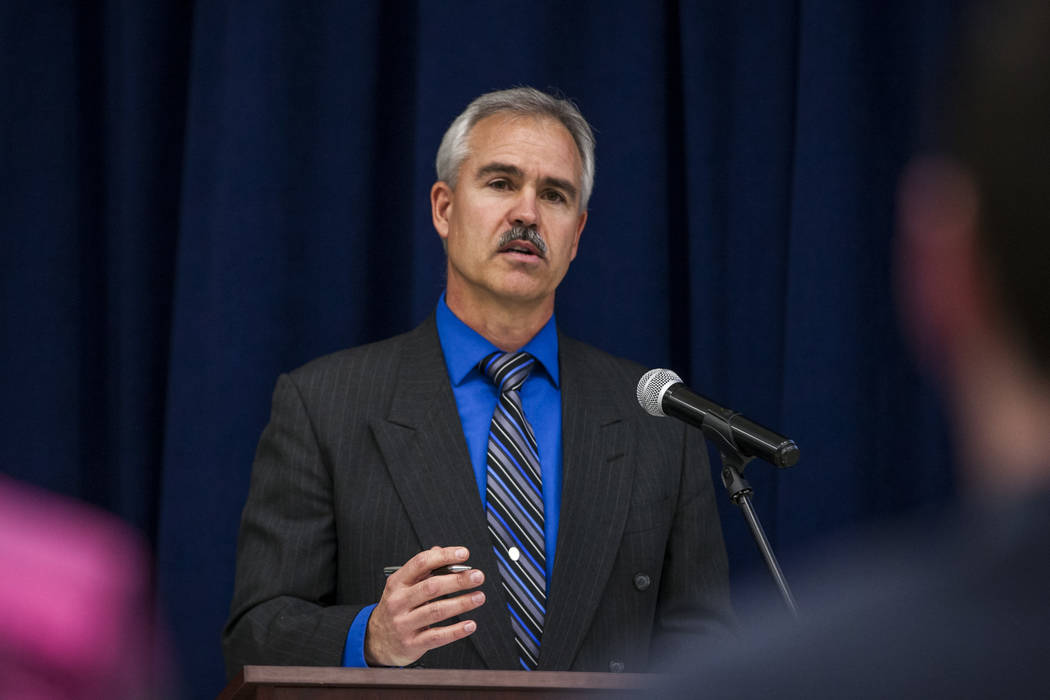
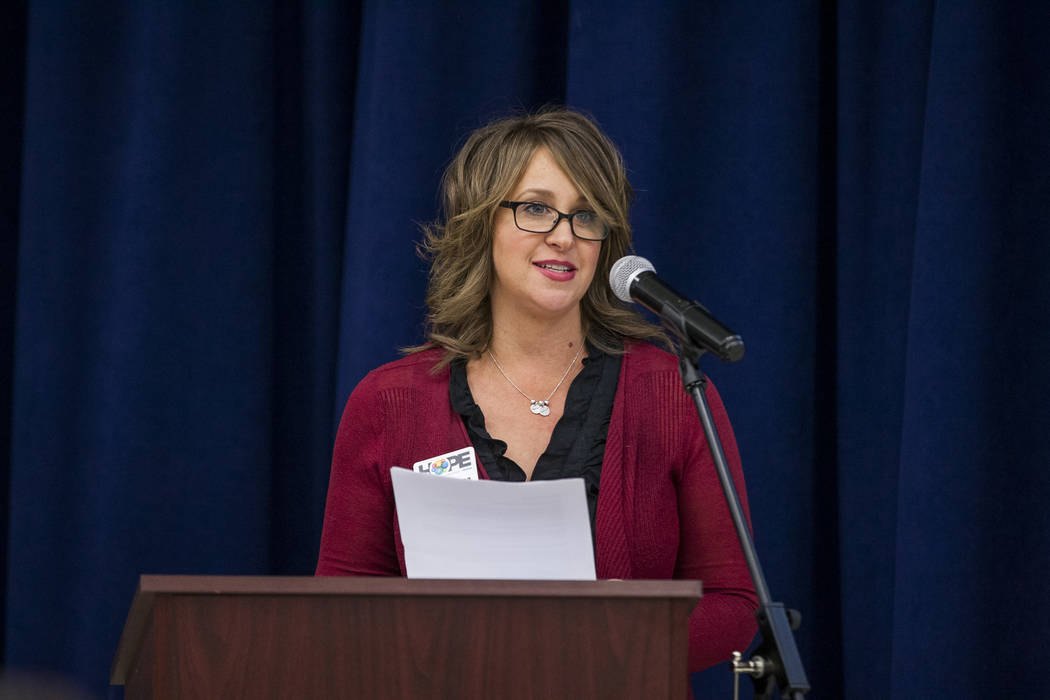
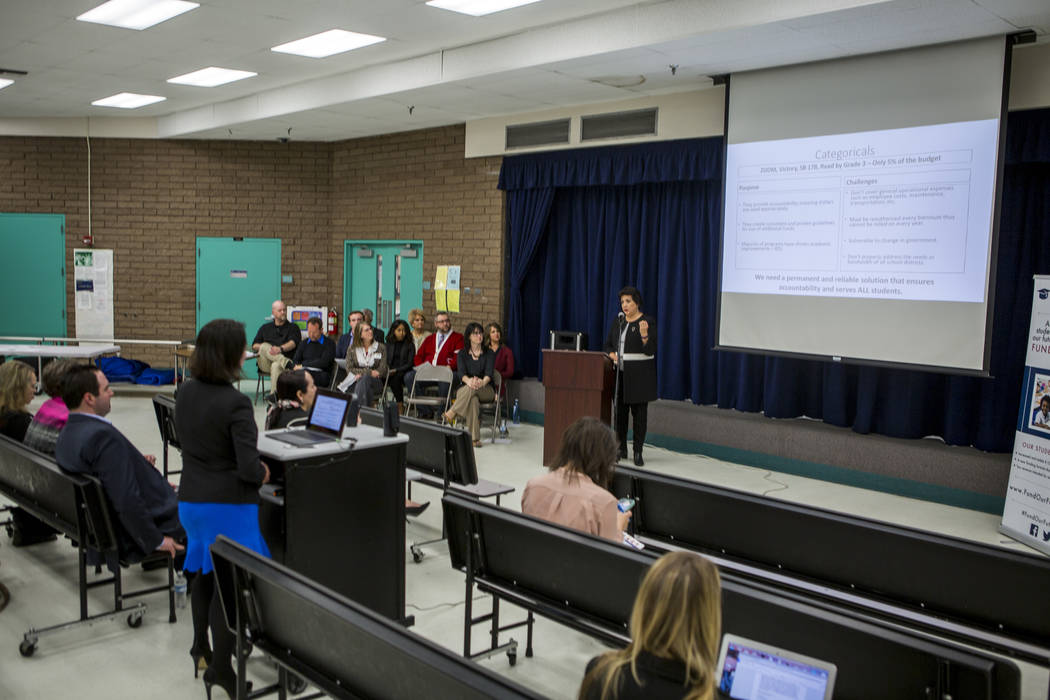

A statewide campaign launched Tuesday demanded adequate funding for students and highlighted Nevada’s position as the worst state in the nation for education and its low ranking for education funding.
Teachers, students and other members of the Fund Our Future Nevada campaign stressed the need for public awareness of the issues, noting that while recent investments are helpful, they’re not enough.
“Nevada schools are crumbling,” said Connor Leeming, student body president at Palo Verde High School. “I go to many schools in my services as student body president, and I see teachers being cut, 40-plus kids in a room in core classes, budgets slashed. And although Nevada business is booming, once again our schools remain isolated and forgotten in the shadows.”
The announcement at Tomiyasu Elementary School in the east valley focused on marijuana taxes and room taxes as examples of how funding initially intended for education does not end up benefiting it.
Money from the room tax, passed in 2009, was meant to generate money for schools in a supplemental account. Since 2011, however, that money has been transferred to the Distributive School Account, the state’s main source of education funding.
Critics argue that that move supplants existing funding for schools rather than supplementing it — reducing the state’s burden to school districts’ per-pupil amount.
The tax has raked in roughly $893.7 million from fiscal year 2012 to 2017, according to figures from the governor’s finance office.
Jenn Blackhurst, president of the Hope for Nevada advocacy group, said legislators have continued to balance the state’s budget on the backs of children.
“It’s so frustrating for me to hear people complain about our public education and say, ‘We’ve given them money, and they haven’t been able to make any improvements with it,’” she said. “When in fact people don’t understand that that money hasn’t been used as the voters intended.”
She also pointed to the 10 percent retail tax on recreational marijuana, which was proposed to go to schools but later was diverted to the state’s rainy day fund after a last-minute legislative showdown.
The announcement follows a three-part Review-Journal series on the state of education funding in Nevada, which highlighted the Silver State as one of only a handful that hasn’t been legally challenged over its education funding.
Delaware recently joined the states that have been sued, after the American Civil Liberties Union filed a complaint in January over the state’s funding and resources.
The Review-Journal series also found that the Clark County School District’s per-pupil amount from the Distributive School Account has only increased 66 percent since 1967, when accounting for inflation, despite an increasingly diverse student population.
Yet recent education initiatives have sought to address the needs of those students, and Gov. Brian Sandoval has touted his leadership in sealing $470 million for targeted student populations in the past two legislative sessions.
“I believe that one of the most important investments we can make as a state is the investment we make in our future and in Nevada’s young learners,” Sandoval told the Review-Journal in November. “I do not agree with the premise stated by some that insufficient funds have been provided to our counties. I have great respect and appreciation for the teaching profession and all educators, and that is why I supported the single largest increase in K-12 education funding in Nevada history.”
Paul Johnson, chief financial officer for the White Pine County School District, recognized those efforts by Sandoval and legislators at the campaign announcement. But he called for a fix to the largest category of a school district’s budget — the state’s general fund.
Base funding for each district, he argued, first needs to be fixed.
“If that base is not correct, then anything attached to that base is also going to be skewed,” he said. “It’s important that we get that base funding correct and have a sincere and earnest conversation about the educational services and the cost and demand associated with that.”
The Fund our Future campaign is a look into a potentially hot-button issue for Nevada’s next legislative session in 2019.
The Nevada Department of Education didn’t respond to a request for comment on the campaign.
Contact Amelia Pak-Harvey at apak-harvey@reviewjournal.com or 702-383-4630. Follow @AmeliaPakHarvey on Twitter.
Nevada’s failing grades
The Silver State ranked last out of the 50 states and the District of Columbia in Education Week magazine’s 2018 Quality Counts report. The state received an overall grade of D, below the country’s C average. The same report gave Nevada a D-minus in the category of school finance.



















